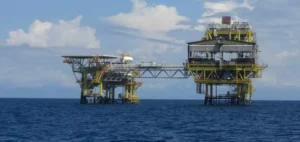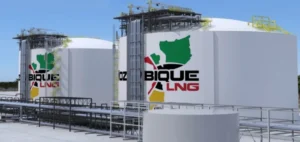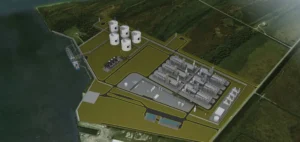Russia cancels deadline for resuming exports to Europe via the Nord Stream 1 pipeline on September 2. Moscow states that it discovered a defect during maintenance. This situation aggravates Europe’s difficulties in obtaining gas supplies for the winter.
Interruption of Nord Stream 1
The closure of Nord Stream 1 raises concerns about a prolonged supply interruption. The halt in exports from Russia to Germany could lead to further increases in gas prices in Europe. In addition, Russia was already reducing flows to Europe via Nord Stream 1 to 20%.
Moscow claims that Western sanctions related to the Russian-Ukrainian conflict are hampering the repair of equipment. For its part, Europe sees this as a pretext for reducing exports. It considers that Russia uses gas as a political weapon, an argument that Russia denies.
An energy dependency
Europe depends on Russia for about 40% of its natural gas, which is mainly transported through a series of pipelines. In fact, in Europe, an interconnected network of gas pipelines links domestic gas markets. However, not all countries receive gas directly from Russia.
Germany, the largest buyer of Russian gas in Europe, must make up for the drop in exports by importing from Norway. Variations in Russian supply can lead to volatility in gas prices in Britain and elsewhere in Europe. However, Britain generally receives less than 4% of its gas from Russia.
A European distribution
Gas exports from Russia to Europe have already fallen over the past seven months. As a result, the flows of the three main pipeline routes will decrease by approximately 40% compared to the same period in 2021. In addition, Yamal is working in the opposite direction, with Germany re-exporting gas to Poland since the beginning of the year.
Flows via Nord Stream 1 and Ukraine, which were already lower than last year, continued to decline in March. This new decrease in gas exports from Russia comes after the outbreak of the Russian-Ukrainian conflict. Finally, this year Moscow stopped deliveries to Bulgaria, Finland and Poland.
Business Impacts
Russia is also stopping deliveries to companies that refuse to pay in rubles, such as Orsted, Gasterra and Shell. However, several companies such as Uniper, RWE or Eni are making payments under the new Russian regime. Thus, these companies continue to receive gas.
However, companies such as Uniper and RWE have limited supply despite payment in rubles. Recently, the French company Engie was notified by Gazprom on August 30 of a supply limitation. In response, Paris accuses Moscow of using gas supplies as a weapon of war.
Search for alternatives
The European Union’s ambition is to be free of dependence on Russian fossil fuels by the year 2027. Brussels continues to look for alternatives, including increased LNG imports. As a result, European LNG imports increase by about 56% in the first half of 2022, compared to the first half of 2021.
Nevertheless, Europe has limited capacity to receive LNG. In addition, supply concerns are compounded by the shutdown of a major U.S. export plant owned by Freeport LNG. The site, which can export up to 15 million tons per year, has been out of service since June and will not restart until November.






















